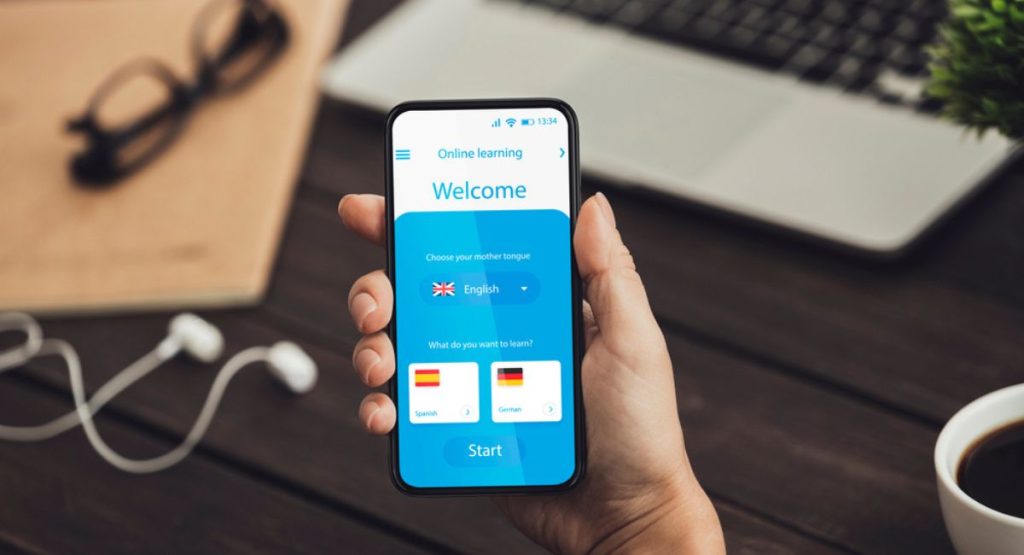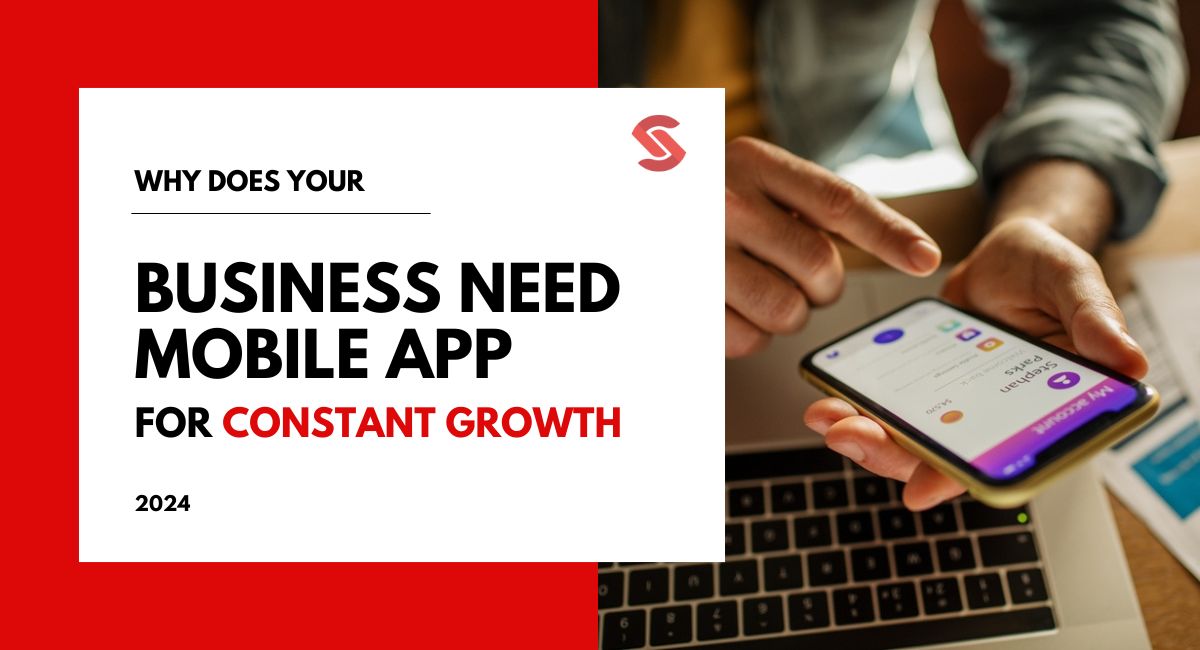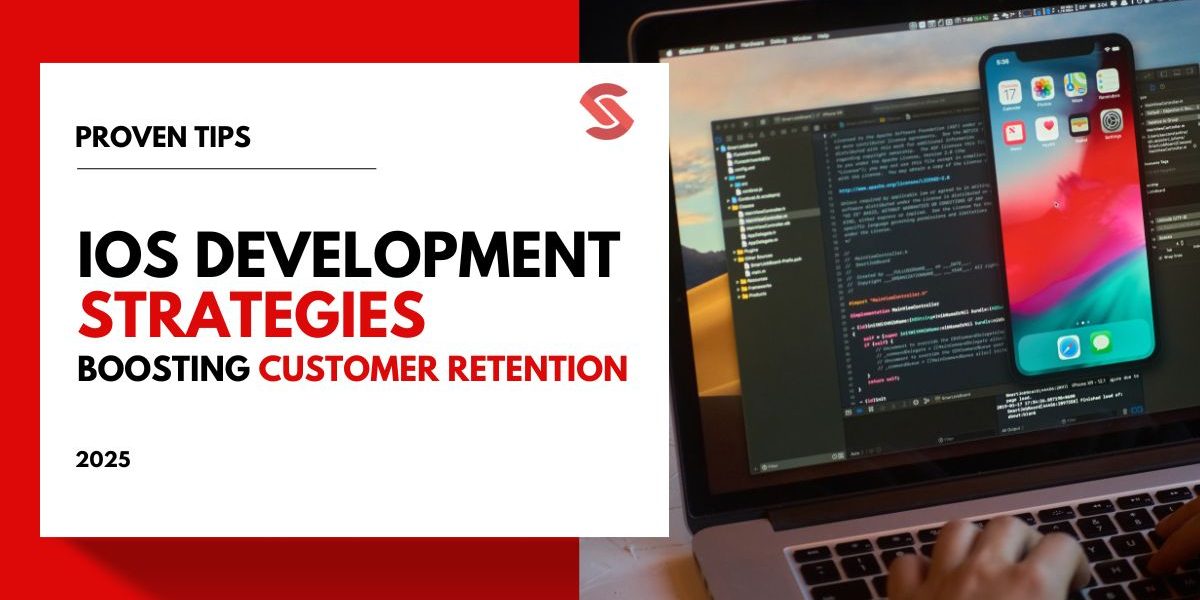Having a mobile app for your business isn’t just a luxury, it’s a necessity. With smartphones becoming an integral part of daily life, customers expect instant access to services and products at their fingertips. A mobile app can boost your business’s visibility, improve customer engagement, and drive sales.
It’s about keeping up with the times and meeting your audience where they are. Whether you’re a small startup or a well-established company, an app can offer numerous benefits. From offering exclusive deals to providing customer support, the right app can make a significant impact on your business’s growth and success.
If you are a business owner or planning a startup then this blog is for you, because in this blog we will discuss why your business needs a mobile app.
Custom Mobile App!
Understanding the Importance of Mobile Apps in Today’s Market

Mobile apps have become essential for modern businesses, driving both growth and digital transformation. With over 3.8 billion smartphone users globally, businesses can no longer ignore the power of mobile technology.
Mobile apps offer a direct channel to customers, enhancing engagement and providing personalized experiences that websites alone can’t match. Statistics show that 90% of mobile time is spent on apps, highlighting their dominance over traditional web browsing.
Using mobile app development services for your business growth, boosts efficiency, streamlines operations, and keeps companies competitive in an ever-evolving market. By leveraging these digital tools, businesses can respond to market trends more effectively and provide better customer service.
Additionally, apps can facilitate faster communication, improve customer loyalty, and provide valuable data insights. Recognizing the necessity of mobile apps is crucial for adapting to technological advancements and ensuring long-term success. In a competitive market, investing in a mobile app is a strategic move that can significantly benefit your business.
Major Industries That Can Benefit From Mobile Applications

Mobile apps are transforming industries by enhancing customer experiences and driving business innovation. Key sectors benefiting from mobile technology include healthcare, retail, finance, education, and hospitality.
Industry-specific apps are revolutionizing business models, making operations more efficient and customer interactions more engaging. For instance, healthcare apps improve patient management, while retail apps boost sales through personalized offers. As businesses continue to adopt digital innovation, the impact of mobile apps will only grow stronger.
Here are the several major Industries that benefit from mobile applications:
1. Food and Restaurant Industry

Mobile apps are transforming the food and restaurant industry by enhancing customer service and operational efficiency. With mobile ordering and delivery apps, customers can conveniently place orders and track deliveries in real-time.
Statistics reveal that 60% of U.S. consumers order takeout or delivery once a week, highlighting the demand for these services. Additionally, digital menus and online reservations streamline dining experiences. Customer loyalty programs, integrated into these apps, encourage repeat business by offering rewards and personalized deals. As the industry continues to evolve, the adoption of mobile technology is set to drive further growth and innovation, benefiting both businesses and customers alike.
2. FinTech Industry

Mobile apps are revolutionizing financial services, driving innovation in the FinTech industry. Mobile banking allows users to manage their accounts, transfer funds, and pay bills with ease. Personal finance apps help users budget and track expenses, promoting better financial habits. Investment platforms offer accessible tools for managing portfolios and trading stocks.
According to recent data, over 80% of Americans use mobile banking apps. Enhanced security features, such as encryption and real-time fraud prevention, ensure secure transactions. While regulatory challenges persist, the benefits of FinTech apps, including convenience and improved financial management, continue to attract a growing number of users worldwide.
3. Healthcare and Fitness industries

Mobile apps are transforming healthcare delivery and personal fitness, making services more accessible and efficient. Telemedicine apps facilitate remote consultations, reducing the need for in-person visits. Fitness tracking apps, integrated with wearable app development services, monitor physical activity and health metrics, helping users stay on track with their wellness goals.
According to a recent study, 60% of smartphone users have downloaded a health-related app. Popular technologies in this industry include wearable devices like smartwatches and health monitoring sensors. These innovations provide real-time health data and personalized recommendations, enhancing patient management and overall well-being. The increasing use of mobile health apps continues to drive significant improvements in healthcare and fitness.
4. E-Learning Industry

Mobile apps are revolutionizing access to education, making learning more flexible and engaging. E-learning apps provide online courses, educational games, and remote learning tools, catering to a wide range of subjects and skill levels. According to a report, the e-learning market size is expected to reach $325 billion by 2025.
Popular technologies in this industry include adaptive learning platforms and interactive content. These innovations enhance student engagement and personalize the learning experience. With features like course accessibility and real-time feedback, mobile education apps are breaking down barriers to education, offering opportunities for lifelong learning and skill development to millions worldwide.
4. Entertainment Industry

Mobile apps are transforming how people access and interact with entertainment content. Streaming services like Netflix and Spotify offer vast libraries of media on demand, while interactive gaming apps provide immersive experiences. The global mobile gaming market alone was valued at $77.2 billion in 2020.
Streaming app development services are enhancing live streaming capabilities and creating new virtual event experiences. Technologies such as augmented reality (AR) and virtual reality (VR) contribute to this transformation. Personalized recommendations based on user preferences improve engagement and satisfaction. As these apps continue to evolve, they significantly impact user experience and drive market growth, making entertainment more accessible and enjoyable than ever.
How Mobile Apps Transform Customer Interaction and Drive Engagement

Mobile apps revolutionize how businesses interact with customers, significantly boosting engagement. By providing personalized experiences, push notifications, and instant customer service, apps keep users connected and satisfied. Studies show that businesses using mobile apps see higher customer retention rates. Enhanced user interface design and real-time feedback mechanisms ensure a superior customer experience. These engagement strategies not only improve customer relations but also drive growth and loyalty, making mobile apps an essential tool for modern businesses.
Here are some key points:
1. Streamlining Communication Channels
Mobile apps simplify and unify communication between businesses and customers through features like in-app messaging, push notifications, and chatbots. In-app messaging allows for real-time communication, making customer support more accessible and efficient. Chatbots provide automated responses to common queries, reducing wait times and enhancing user satisfaction.
According to recent data, 80% of businesses plan to use chatbots by 2022. Push notifications keep users informed and engaged, offering direct updates on promotions and services. These tools improve responsiveness and ensure customers receive timely assistance, driving better engagement and strengthening customer relationships. As a result, mobile apps are essential for modern customer service strategies.
2. Enhancing User Experience with Intuitive Design
A user-friendly design in mobile apps is important for enhancing customer satisfaction and engagement. Following a comprehensive UI/UX guide for business can significantly improve navigation ease and overall user experience (UX), making apps more accessible and enjoyable. Studies show that 88% of users are less likely to return to a site after a bad experience, highlighting the importance of intuitive design.
Key elements include clear navigation, attractive design aesthetics, and responsive interactions. By focusing on these design principles, businesses can create apps that not only meet but exceed user expectations, driving higher engagement and loyalty. Effective UX design is a vital factor in the success of any mobile app.
3. Offering Personalized Experiences
Mobile apps significantly enhance customer interaction by offering personalized experiences. Using behavior analytics, these apps can tailor content and marketing efforts to individual users. For example, personalized marketing delivers custom offers based on user preferences and past behaviors. Statistics show that 80% of consumers are more likely to purchase from brands that offer personalized experiences.
Additionally, content customization keeps users engaged by presenting relevant information and recommendations. By leveraging user data and engagement metrics, businesses can create strategies that resonate with their audience, fostering loyalty and increasing satisfaction. Personalized experiences through mobile apps are essential for modern customer engagement and retention.
4. Increasing Accessibility and Constant Connectivity
Mobile apps ensure businesses are accessible 24/7, significantly enhancing customer convenience. With real-time data access and around-the-clock service, customers can engage with businesses whenever they need. According to recent studies, 70% of consumers expect a company’s website or app to include a self-service application.
This constant connectivity allows for real-time customer support and immediate response to inquiries. Features like push notifications and instant messaging keep users informed and connected. By providing always-on support and accessibility, mobile apps help businesses meet customer expectations, improve satisfaction, and foster loyalty. The ability to be available anytime is a critical advantage in today’s competitive market.
5. Leveraging Valuable Analytics to Inform Business Decisions
Mobile app analytics provide invaluable insights that can significantly enhance business strategies. By analyzing customer data and behavior, businesses can make data-driven decisions to improve products and services.
For example, tracking performance metrics can identify popular features and areas needing improvement. Studies show that 73% of companies using data analytics see a significant increase in their sales. Ensuring data privacy and compliance with regulations like GDPR is crucial for maintaining customer trust.
By leveraging these analytics, businesses can fine-tune their operations, personalize marketing efforts, and ultimately boost customer satisfaction and engagement. Analytics-driven strategies are essential for staying in the market.
Cost Considerations and Budgeting for Mobile App Development

Financial planning is the main step of the mobile application development process, as it ensures that all aspects of the project are adequately funded and managed. Key cost considerations include expenses, design and UX investment, testing and maintenance, and marketing efforts.
Proper budgeting tips can help prioritize essential features, allocate funds efficiently, and ultimately achieve a strong return on investment. Thorough financial planning can prevent overspending and ensure the app’s success and sustainability.
Here are key cost considerations and budgeting tips:
- Development Costs: mobile application development services include hourly rates for developers, which can range from $50 to $150 per hour depending on location and expertise. The total development time will also impact costs, with complex apps requiring more hours.
- Feature Cost Analysis: Complex features like payment integration, real-time updates, and user authentication add to the cost. Prioritize essential features to manage the budget effectively.
- Design and UX: Investing in a good mobile app design enhances user experience. Budget around 10-20% of total costs for design, focusing on intuitive user interfaces and seamless navigation.
- Testing and Maintenance: Regular testing ensures the app functions smoothly, and ongoing maintenance is necessary for updates and bug fixes. Allocate around 15-20% for this to keep the app updated and secure.
- Marketing: Promoting your app is crucial for its success. Including costs for application optimization services ensures a good launch and continuous user acquisition. Effective marketing strategies can significantly boost your app’s visibility and user base.
A well-planned budget considers these factors and focuses on cost-effective development while aiming for a strong return on investment. This comprehensive approach helps in creating a successful and sustainable mobile app.
Choose MVP for Efficient App Development

Starting with a Minimum Viable Product (MVP) in app development offers numerous advantages for businesses looking to test new ideas efficiently and effectively. This approach focuses on developing a basic version of the app with essential features, allowing for quicker market entry and cost savings. It enables businesses to gather valuable user feedback, validate market demand, and make informed decisions for future development.
Here are some key benefits and approaches:
- Introduction to MVP: An MVP is a simplified version of your app with core features that address the main problem or need. This approach allows for quicker development and market entry.
- Cost-Efficiency: Developing an MVP requires fewer resources and time compared to a fully-featured app, helping to manage costs effectively.
- Market Validation: Launching an MVP helps validate the market demand for your product. It allows you to gather real user feedback early on, ensuring your app meets user needs.
- Product Iteration: With an MVP, you can prioritize and implement features based on customer feedback, making necessary adjustments before scaling up.
- Customer Feedback Loop: Collecting user feedback during the initial stages helps create a better product by continuously improving based on real user experiences.
Selecting an MVP for your app development aligns with the lean startup methodology, providing a strategic approach to test, learn, and iterate, ensuring a higher chance of success.
Preparing for the Future: Mobile Apps in Emerging Tech Trends

Integrating mobile apps with emerging technologies like AI and IoT is shaping the future of innovation and convenience by creating more intelligent, connected, and responsive applications. This integration enhances the functionality and user experience of mobile apps, making them more adaptive to user needs.
The potential impacts of these integrations are vast, ranging from improved customer engagement and operational efficiency to new business models and revenue streams. Here are some key factors influencing this industry and the potential impacts:
- Artificial Intelligence (AI): AI-powered apps can provide personalized experiences, predictive analytics, and enhanced customer support through chatbots. According to a recent study, 70% of businesses plan to integrate AI by 2025, highlighting its growing importance.
- Internet of Things (IoT): IoT connectivity allows mobile apps to interact with smart devices, creating seamless user experiences. For instance, smart home apps can control lighting, security systems, and appliances remotely. The global IoT market is projected to reach $1.1 trillion by 2026.
- Enhanced User Experience: Combining AI and IoT with mobile apps leads to innovative solutions that improve user engagement and satisfaction. Real-time data processing and automation offer convenience and efficiency in everyday tasks.
- Market Trends: Businesses adopting these technologies stay competitive and meet evolving consumer demands. Mobile apps that leverage AI and IoT are positioned to capitalize on future tech trends, driving growth and market differentiation.
As these technologies advance, the potential for mobile apps to deliver tech-driven solutions continues to expand. Following these trends ensures businesses can offer cutting-edge services, enhancing overall user experience and staying ahead in the market.
Final Thoughts
In conclusion, mobile apps are essential for sustainable business growth, offering significant advantages in today’s tech-driven market. Investing in mobile app development is a strategic move that enhances market presence, customer engagement, and competitive advantage. As businesses increasingly rely on technology to drive growth, mobile apps provide the tools needed for effective customer interaction and operational efficiency. To remain competitive and achieve long-term success, businesses must prioritize mobile app development as a key component of their growth strategy.
FAQs about Mobile Applications
1. Why is having a mobile app crucial for my business?
A mobile app boosts visibility, improves customer engagement, and drives sales by providing customers with instant access to services and products.
2. What are the main benefits of mobile apps for businesses?
Mobile apps enhance customer interaction, streamline operations, provide personalized experiences, and offer valuable data insights.
3. Which industries benefit the most from mobile applications?
Key sectors include healthcare, retail, finance, education, and hospitality, with specific benefits such as improved patient management, increased sales, and enhanced customer service.
4. How do mobile apps improve customer engagement?
Mobile apps offer personalized experiences, push notifications, and instant customer service, which keeps users connected and satisfied.
5. What is an MVP (Minimum Viable Product) in app development?
An MVP is a basic version of the app with essential features, allowing businesses to test the market, gather user feedback, and make informed decisions for future development.
6. What are the cost considerations for mobile app development?
Key cost factors include development expenses, feature complexity, design and UX investment, testing and maintenance, and marketing efforts.
7. How do mobile apps enhance user experience with intuitive design?
A good UI/UX design ensures easy navigation, attractive aesthetics, and responsive interactions, making the app more accessible and enjoyable for users.
8. Why should businesses consider mobile app analytics?
Analytics provide insights into customer behavior and app performance, enabling businesses to make data-driven decisions, improve products, and personalize marketing efforts.
9. What role do AI and IoT play in the future of mobile apps?
AI and IoT integration enhances app functionality, offering personalized experiences, predictive analytics, real-time data processing, and seamless interaction with smart devices.
10. How can mobile apps streamline communication channels for businesses?
Features like in-app messaging, push notifications, and chatbots improve real-time communication, making customer support more accessible and efficient.
11. What are the key elements of an effective mobile app marketing strategy?
A successful strategy includes app store optimization, targeted advertising, social media promotion, and continuous user engagement to boost visibility and user acquisition.
12. How does developing a mobile app contribute to a business’s competitive advantage?
Mobile apps provide a direct channel to customers, enhance operational efficiency, offer personalized services, and help businesses stay ahead in an ever-evolving market.





